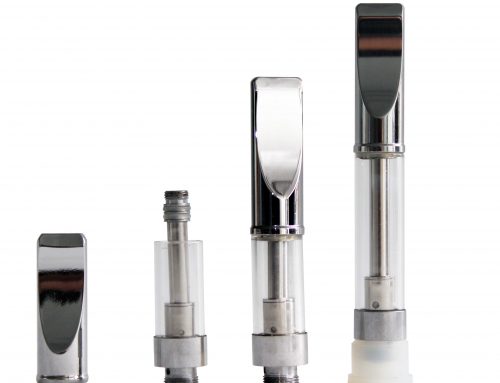Unveiling the Timelines: How Long Does It Take for THC Oil to Take Effect? Factors, Effects, and Insights
THC oil, derived from cannabis plants, is renowned for its potential therapeutic effects and recreational use. However, one crucial question often arises in THC oil consumption: “How long does it take for THC oil to take effect?” The onset time of THC oil’s effects can vary depending on several factors. In this comprehensive article, we delve into the timelines, factors, and effects related to the onset of action of THC oil. By understanding these aspects, individuals can gain valuable insights into the expected onset time and make informed decisions regarding dosage and administration methods.
Factors Influencing the Onset Time of THC Oil:
-
Absorption and Metabolism: The body’s absorption and metabolism processes play a crucial role in determining the onset time of THC oil. Inhalation, such as smoking or vaping, provides rapid absorption of THC into the bloodstream through the lungs, resulting in quicker effects. On the other hand, when THC oil is consumed orally, it undergoes digestion and extensive metabolism by the liver before entering the bloodstream, which can delay the onset time.
-
Dosage and Potency: The dosage and potency of THC oil significantly impact the onset time. Higher doses or more potent formulations may lead to faster effects, while lower doses could result in a delayed onset. It is crucial to start with a conservative dosage and gradually adjust to find the optimal balance that suits an individual’s needs.
-
Administration Methods: THC oil can be consumed through various methods, and the administration method can affect the onset time. Inhalation provides rapid effects due to the direct absorption of THC into the bloodstream through the lungs. Oral consumption, such as consuming THC oil-infused edibles, may result in a slower onset time as the oil is metabolized in the digestive system before entering the bloodstream.
-
Individual Variations: Each individual’s body chemistry is unique, leading to variations in the onset time of THC oil. Factors such as metabolism, body composition, and overall health can influence how quickly THC is processed and utilized by the body. It’s important to recognize that what works for one person may not have the same effect and timeline for another.
-
Underlying Medical Conditions: Individuals with certain medical conditions may experience variations in the onset time of THC oil due to the interaction between THC and specific physiological processes. For instance, those with gastrointestinal issues may experience a slower onset due to delays in digestion, while individuals with compromised liver function may experience altered metabolism and clearance of THC.
Effects of THC Oil and Timeline Variations:
THC oil is known for its psychoactive effects and potential therapeutic benefits. The timeline for experiencing these effects can vary from person to person. Understanding the possible effects and timeline variations is crucial for managing expectations and optimizing the usage of THC oil.
-
Rapid Psychoactive Effects: Inhalation of THC oil, such as through smoking or vaping, can produce rapid psychoactive effects within minutes of consumption. Users may experience a feeling of euphoria, relaxation, altered perception, and heightened sensory experiences.
-
Gradual Onset: When consuming THC oil through oral means, such as edibles or tinctures, the onset time can be more gradual. It may take anywhere from 30 minutes to two hours for the effects to be felt. This slower onset time is due to the digestion and absorption processes the THC oil undergoes before reaching the bloodstream.
-
Duration of Effects: The duration of THC oil’s effects can vary depending on individual factors, dosage, and method of administration. Generally, the effects of THC oil can last from two to six hours, with variations based on individual tolerance, metabolism, and other factors.
Insights and Best Practices:
-
Start Low and Go Slow: When beginning THC oil consumption, it’s advisable to start with a low dosage and gradually increase it over time. This approach allows users to assess their tolerance and observe how their body responds to different doses. Starting with a low dose also minimizes the risk of experiencing any potential adverse effects.
-
Responsible Consumption: It’s crucial to consume THC oil responsibly and be aware of individual limits. Avoid driving or operating heavy machinery while under the influence, as THC can impair cognitive function and coordination. Select a safe and comfortable environment for consumption and prioritize personal well-being.
-
Consult with a Healthcare Professional: If you have any underlying medical conditions or are taking medications
it’s essential to consult with a healthcare professional before incorporating THC oil into your routine. They can provide personalized guidance, evaluate potential interactions, and help determine the appropriate dosage and administration method based on your specific needs.
-
Keep a Journal: Keeping a journal or log of your THC oil usage can be helpful in monitoring its effects and identifying patterns. Note the dosage, administration method, onset time, duration of effects, and any changes in symptoms or overall well-being. This record can assist in adjusting dosages, identifying optimal times for consumption, and tracking the overall efficacy of THC oil for your specific needs.
-
Follow Legal Regulations: It’s important to be aware of the legal regulations surrounding THC oil in your jurisdiction. THC oil may be subject to restrictions or require a medical prescription in some areas. Ensure that you are using THC oil in compliance with local laws and regulations.
-
Individualize Your Experience: Since the effects of THC oil can vary from person to person, it’s crucial to individualize your experience. Start with a low dose and gradually increase as needed, always being mindful of the effects and adjusting accordingly. Pay attention to how your body responds and tailor your usage to meet your specific goals and preferences.
-
Patience and Timing: THC oil may take time to reach its full effect, especially when consumed orally. It’s important to be patient and allow your body to metabolize and absorb the THC. Avoid the temptation to re-dose too quickly, as it can potentially lead to overconsumption and unwanted effects. Give each dose ample time to take effect before making any changes.
-
Consider the Entourage Effect: THC is just one of the many compounds found in cannabis. The entourage effect suggests that the combination of THC with other cannabinoids, such as CBD and terpenes, may influence its effects. Consider using THC oil that contains a balanced ratio of cannabinoids and terpenes to potentially enhance the overall experience.
In conclusion, the onset time of THC oil can be influenced by factors such as absorption, metabolism, dosage, administration methods, individual variations, medical conditions, and formulation. Inhalation methods typically provide faster effects, while oral consumption may result in a more gradual onset. Understanding these factors, following best practices, and consulting with healthcare professionals can help individuals optimize their experience with THC oil. It’s essential to consume THC oil responsibly, be aware of legal regulations, and tailor the usage to individual needs and preferences. As with any substance, moderation, self-awareness, and responsible consumption are key to a safe and positive THC oil experience.

